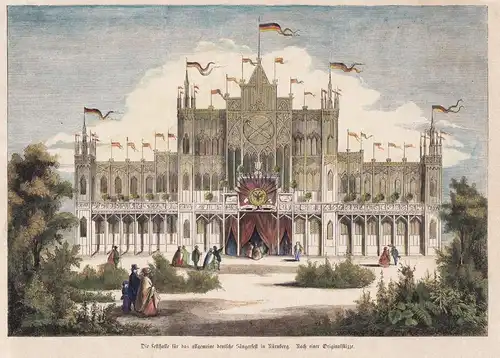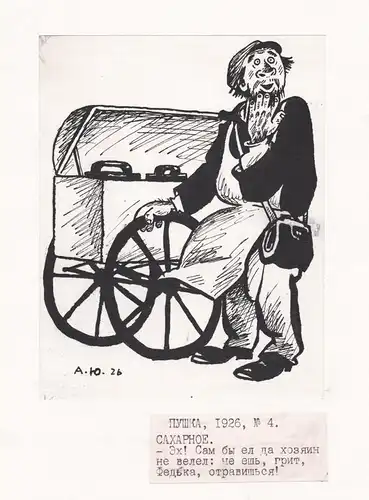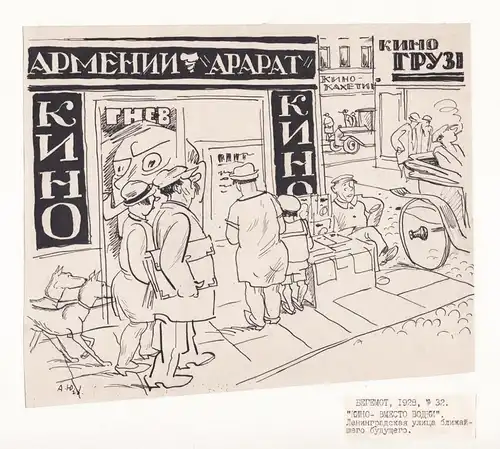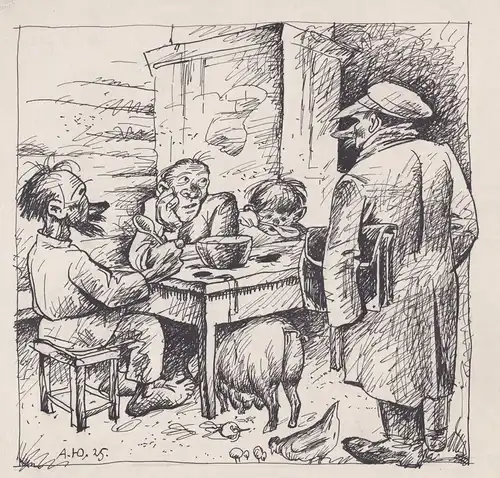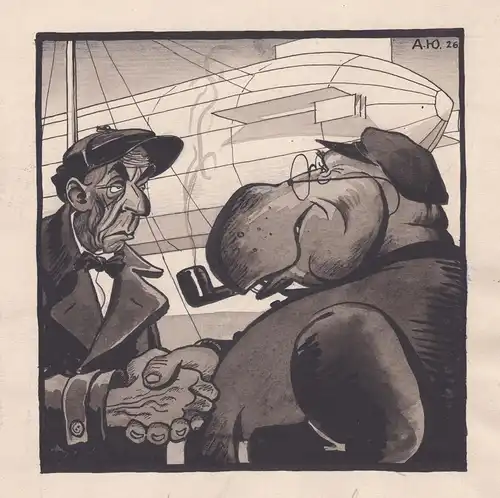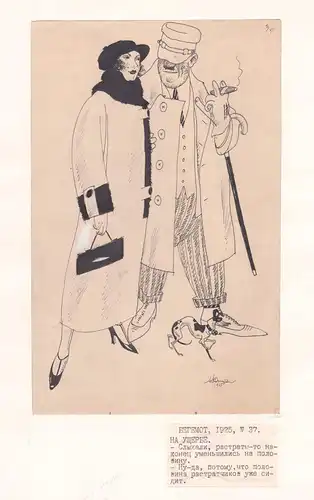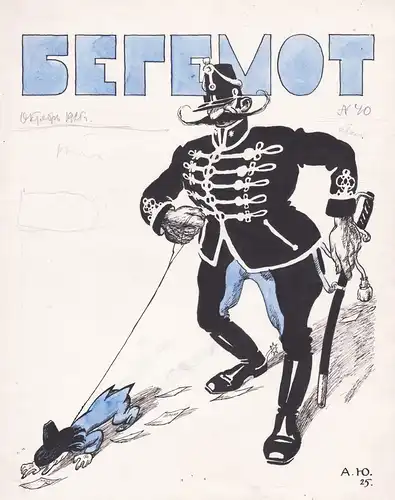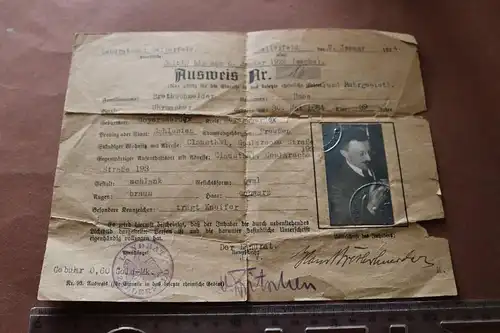Vorzeichnung für die Satire-Zeitschrift "Behemot" (1925); das Magazin erschien in Leningrad (Sankt Petersburg) zwischen 1924 und 1928. / Hochzeitsgäste wedding guests / Karikatur caricature / Russland Russia von Alexander Alexandrovich Jünger (aka Yunger) (1883-1948):
Autor(en)
Alexander Alexandrovich Jünger (aka Yunger) (1883-1948):
Verlag / Erscheinungsjahr
1925.
Sprache
Deutsch
Gewicht
ca. 15 g
Bestell-Nr.
276419
Bemerkungen
Original Tuschezeichnung von 1925. -- Blatt-Maße: ca. 21 x 27 cm. -- gut erhalten. || Original ink drawing from 1925. -- in good condition. || "Behemot" was a Soviet weekly satirical magazine, published as a supplement to the "Krasnaya Gazeta". It was published from October 1924 as a continuation of the satirical magazine «Krasnyy voron» ("Red Raven"), until August 1928, when it merged with the humorous newspaper "Pushka". Between 1924and 1926, this publication was printed on 16 pages, with one-color illustrations. From 1927 it was printed on 12 pages, with various colorful illustrations. -- The editors have worked towards expanding communication with the workers' activists. The task was set to create a magazine of real worker satire. In this way, the appearance of the magazine differed significantly from Red Raven: both externally and in terms of content. The main objects of satire were fools, bureaucrats of all stripes, bunglers, nepmen, priests, kulaks, moonshiners, swindlers, hooligans and other negative characters of Soviet reality. || Alexander Alexandrovich Jünger (aka Yunger), born in 1883, in St. Petersburg, comes from a Russified German family. His father was associated with the Richter trading company, and he had two brothers, Vladimir and Nikolai. He pursued his secondary education in Petrishul, concurrently becoming a student at the drawing school of the Society for the Encouragement of the Arts while in high school. Graduating from both institutions in 1902, he later attended the Institute of Civil Engineers, earning a gold medal upon graduation in 1914. Subsequently, Jünger augmented his education at the Academy of Arts, joining the studio of the renowned architect L. N. Benois. Due to financial constraints, he worked as an architect, staying in Benois's workshop until 1917. Evacuated to Ekaterinodar during the 1918 upheavals, he later became a teacher at the Kuban Polytechnic Institute in Krasnodar. Junger continued his architectural pursuits in the south, contributing to the development of the cities of Krasnodar and Novorossiysk. Upon returning to Leningrad in 1925, Jünger engaged in industrial structure design. He participated in numerous architectural competitions across different cities, winning prizes for 11 projects. In the late 1920s, he began teaching at the Leningrad Institute of Municipal Construction Engineers, eventually becoming a professor in 1930. In 1934, Junger assumed leadership of workshop No. 7 at the Lenproekt institute, concurrently writing articles and collaborating with the Union of Architects. His workshop focused on school projects, leading to the construction of several schools in Leningrad. Notable projects under his guidance included the hospital complex named after Mechnikov and buildings for various institutes. The outbreak of the Great Patriotic War interrupted Junger's active career. Surviving the initial siege winter, he was arrested on March 2, 1942, based on a false accusation. Although initially sentenced to death, clemency was granted, substituting the punishment with 10 years in the camps. Alexander Alexandrovich Jünger passed away on August 13, 1948. Jünger's diverse career included work as an artist, lecturer, and professor, contributing significantly to various magazines and artistic endeavors. He worked as an artist/illustrator for the magazines Sprut, Satyricon, New Satyricon (19051918), for the publishing house Modern Lubok (1917), in the group ROSTA Windows (1919), for the magazines Behemoth, Pushka ", "The Inspector General", "The Laugher" (1920s). He also participated in the creation of the first Soviet theater for children in Krasnodar (early 1920s); was engaged in the design of buildings in Voronezh, Krasnodar, Leningrad, Murmansk, Novorossiysk and other Russian cities. He was a lecturer at the Kuban Polytechnic Institute in Krasnodar (19181925). Main collections of his work are at ROSIZO (Moscow), State Museum "Peterhof", Russian State Museum - both in St. Petersburg.
Unser Preis
EUR 306,99 Aufgenommen mit der Antiquariatssoftware whBOOKSicheres Bestellen - Order-Control geprüft!
Artikel eingestellt mit dem w+h GmbH Delcampe-Service
Daten- und Bilderhosting mit freundlicher Unterstützung von https://www.buchfreund.de07.10.2023 - © by w+h GmbH
Zustand
siehe Artikelbeschreibung
